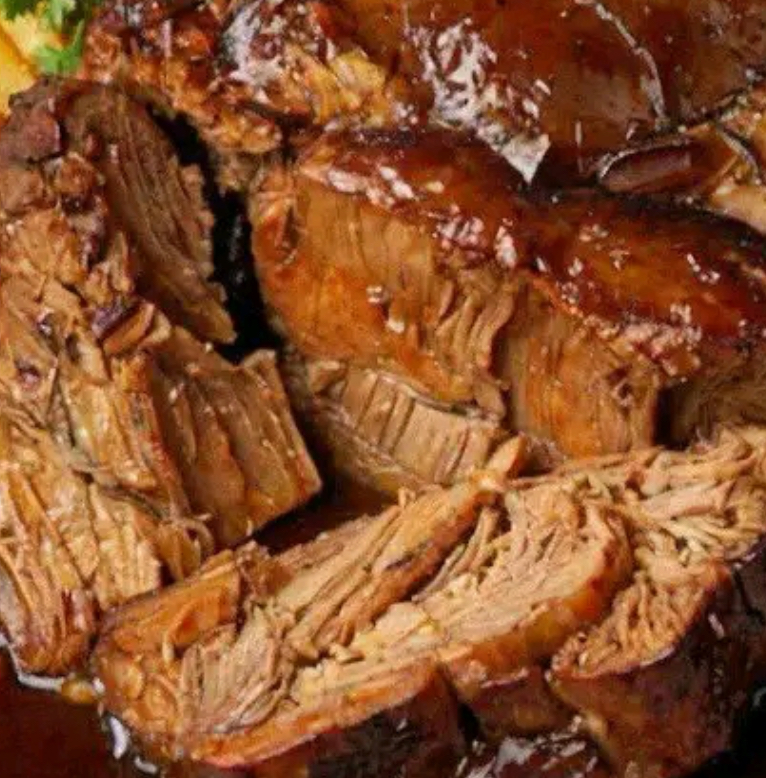About This Recipe
Envelope roasting refers to a traditional cooking technique where meat is completely enclosed in parchment paper or foil during cooking. This method creates a sealed environment that retains moisture and evenly distributes heat.
Why You’ll Love This Recipe
- Produces exceptionally tender results
- Minimizes moisture loss during cooking
- Requires minimal active preparation time
- Concentrates natural flavors
- Simplifies cleanup process
Ingredients
- 1.8-2.3 kg beef chuck or round roast
- 2 tbsp neutral cooking oil
- 1 tbsp kosher salt
- 2 tsp black pepper (freshly ground)
- 1 tbsp dried herbs (rosemary, thyme, or oregano)
- 3 garlic cloves (peeled, smashed)
- Heavy-duty aluminum foil or parchment paper (sufficient to fully encase roast)
Step by Step Instructions
- Prepare meat: Pat roast dry with paper towels. Rub entire surface with oil.
- Season: Combine salt, pepper, and herbs. Apply seasoning blend evenly over meat surface.
- Create envelope: Lay double-layer of foil/parchment (approx 60cm long). Place roast in center. Scatter garlic around meat.
- Seal package: Bring long edges together above roast. Fold down repeatedly in 2cm increments until tight against meat. Crimp ends tightly to create sealed parcel.
- Cook: Place sealed package in roasting pan. Bake at 160°C (325°F) for 3.5-4 hours until tender.
- Rest: Remove from oven. Let rest in sealed envelope 20 minutes before opening.
- Serve: Carefully open package (watch for steam). Transfer meat to cutting board. Slice against grain.
FAQ
Q: Can I add vegetables to the envelope?
A: Root vegetables (carrots, potatoes) may be added around meat. Increase cooking time 20-30 minutes.
Q: Is foil or parchment better?
A: Foil provides tighter seal. Parchment allows slight breathability. Both produce tender results.
Q: Can I brown the meat first?
A: Optional but recommended: Sear seasoned roast in skillet 2-3 minutes per side before wrapping.
You Must Know
- Seal must be completely airtight to prevent steam escape
- Never open envelope during cooking – releases critical steam
- Internal temperature should reach 90-95°C (195-205°F) for shredding tenderness
- Resting period is non-negotiable for juice redistribution
Storage Tips
- Refrigeration: Store cooled meat in airtight container up to 4 days
- Freezing: Wrap tightly in foil/film. Freeze up to 3 months
- Reheating: Best in covered dish with 60ml broth at 175°C (350°F) until heated through
- Do not store in original cooking envelope

